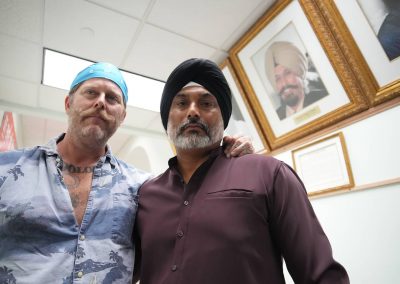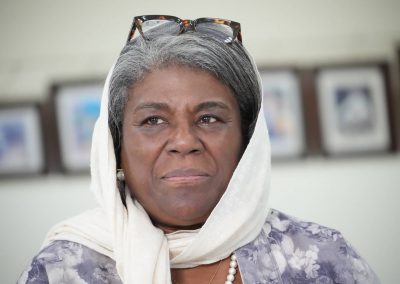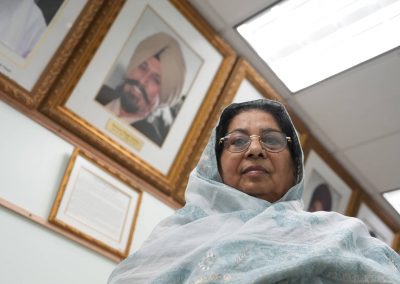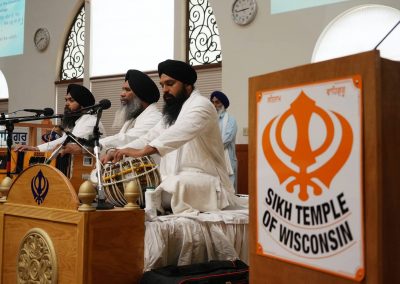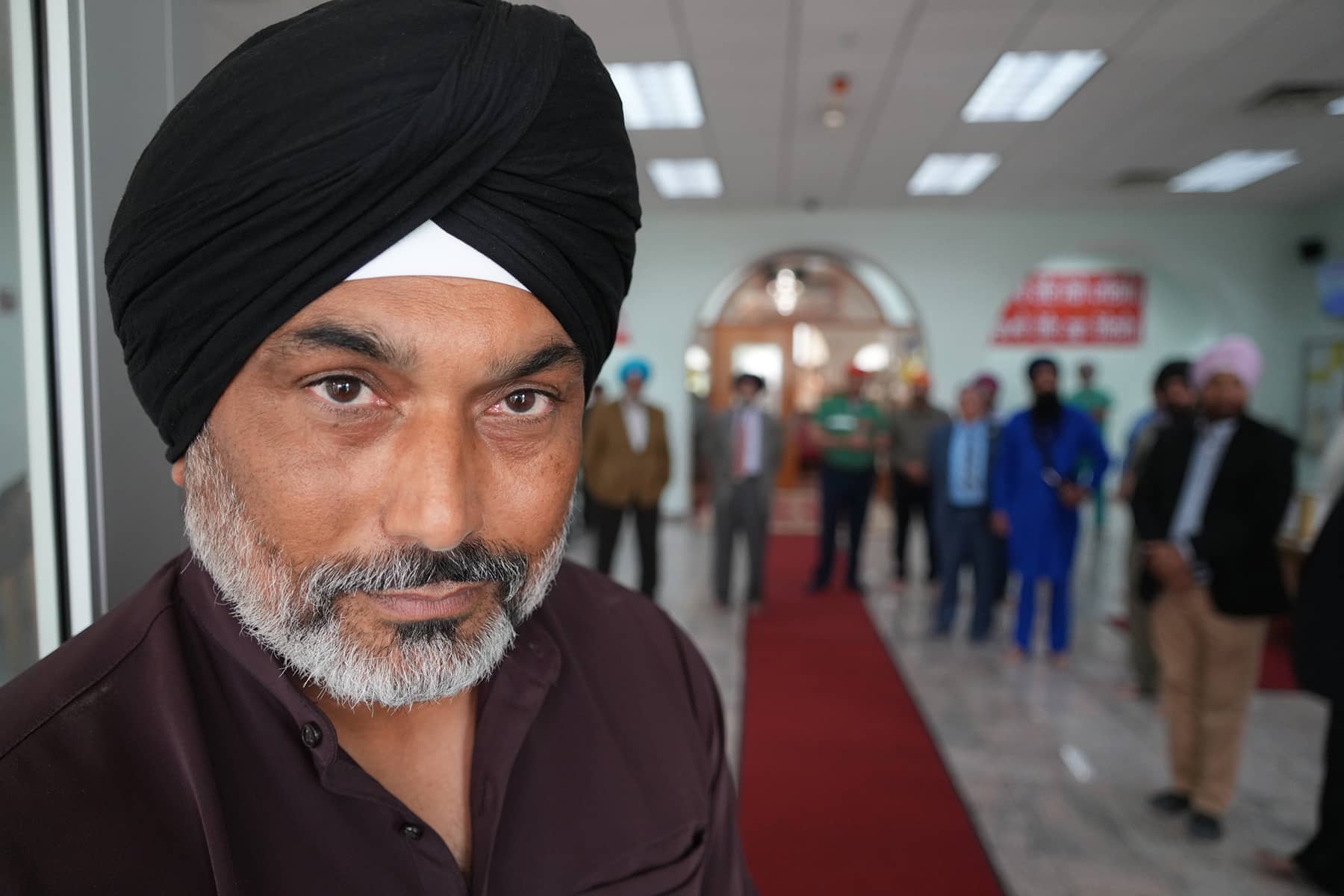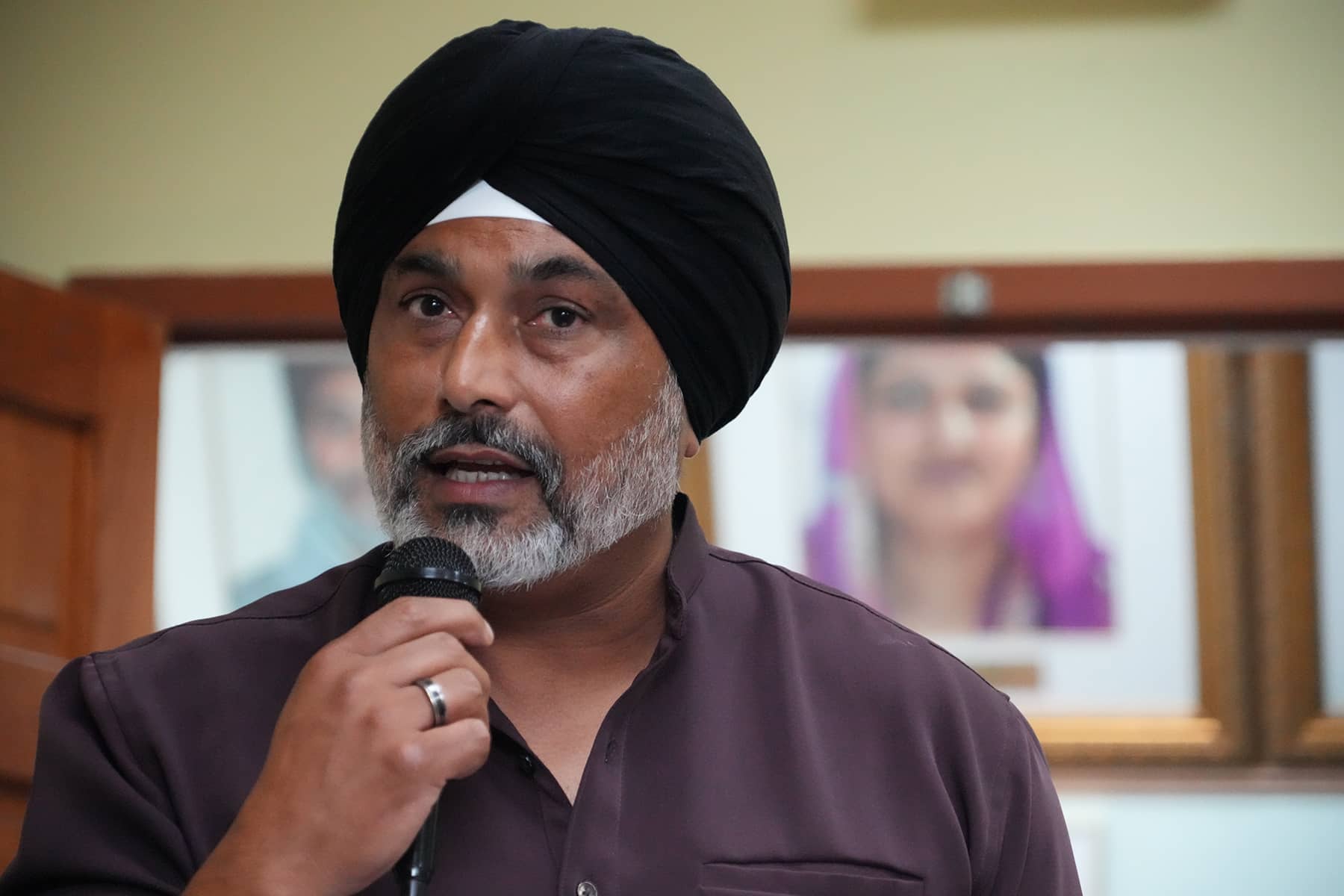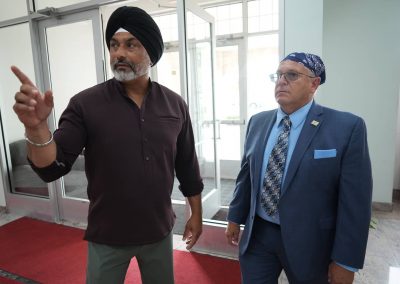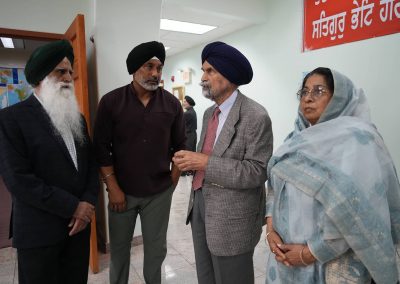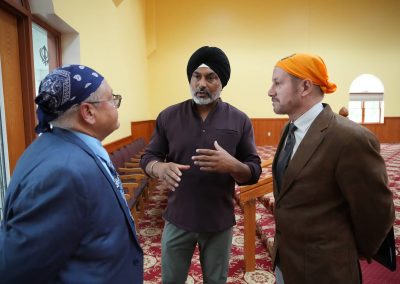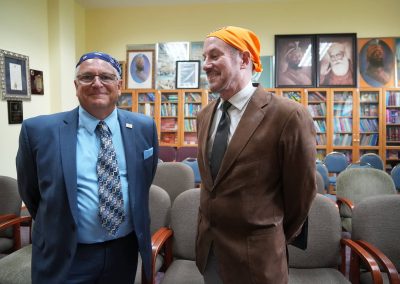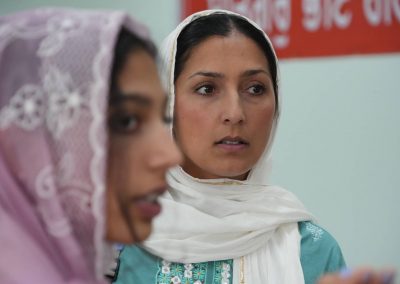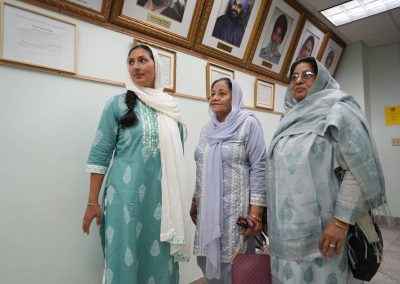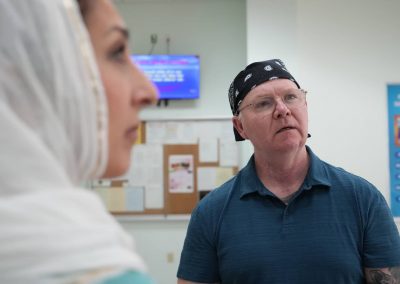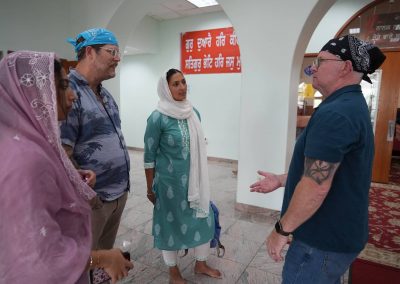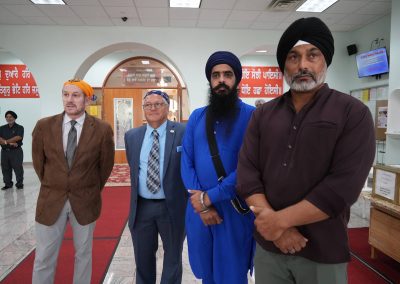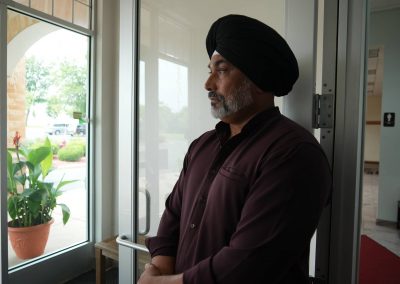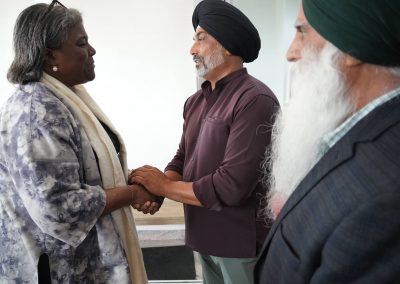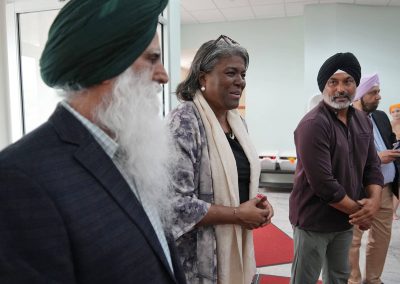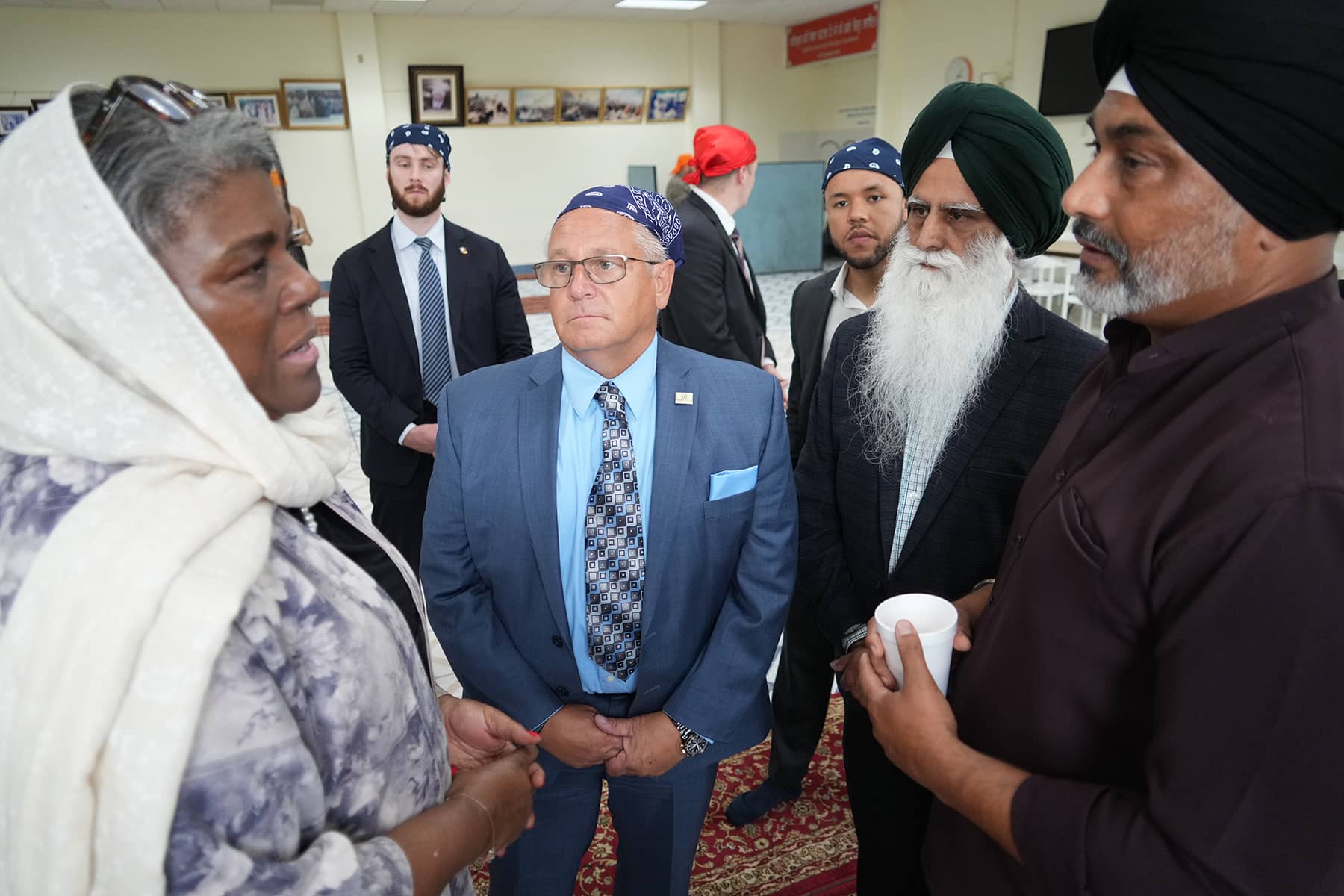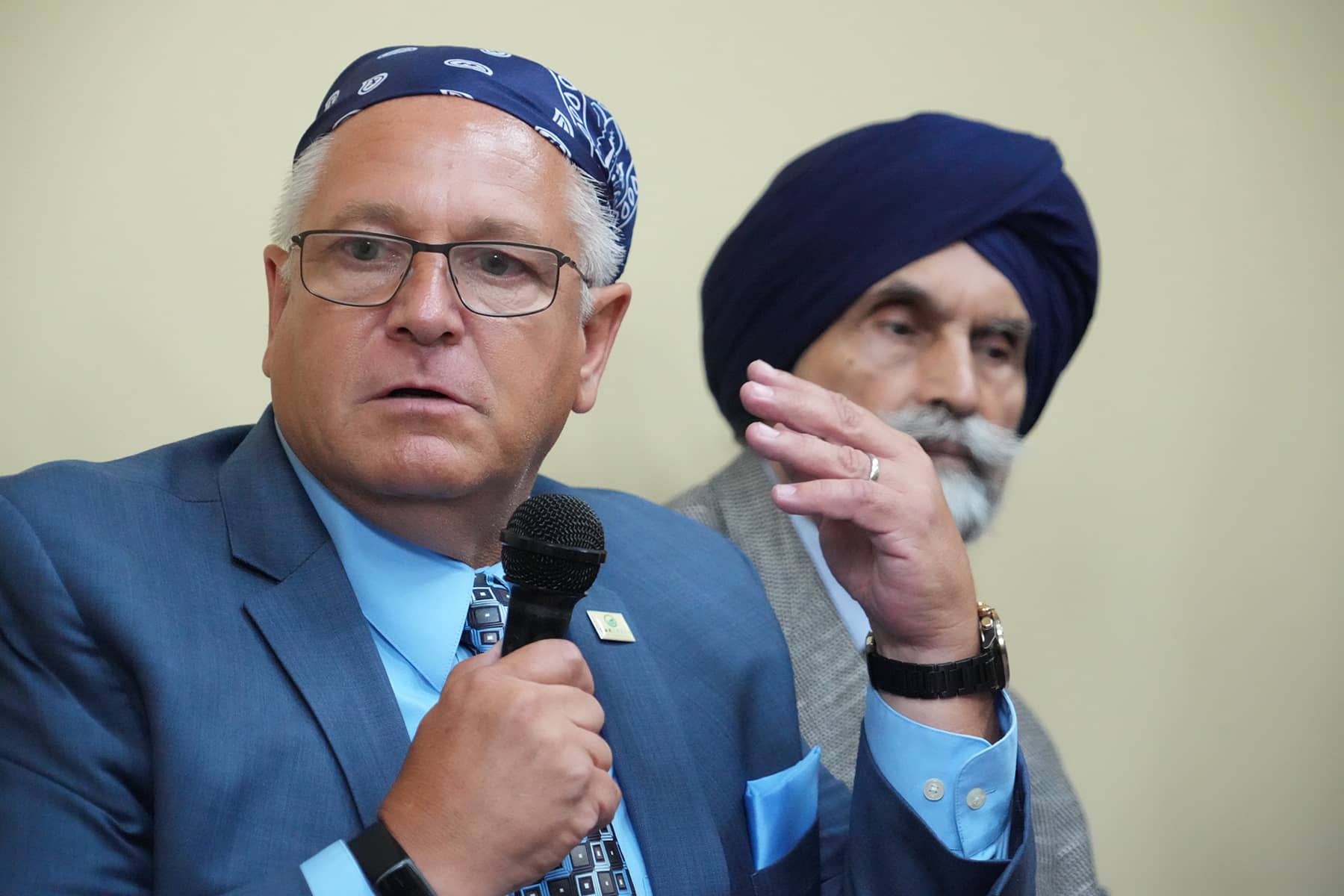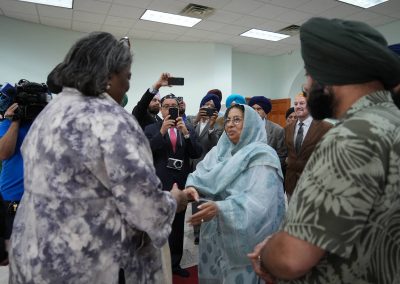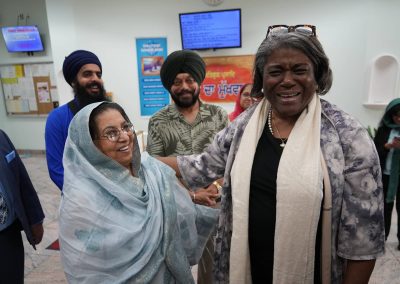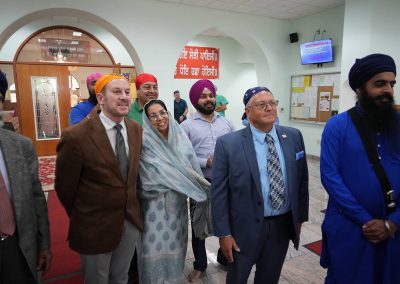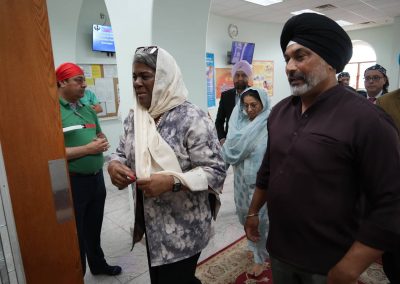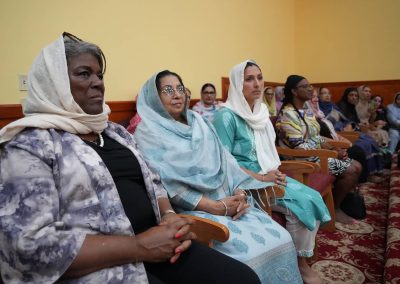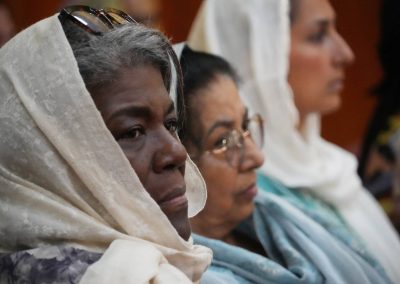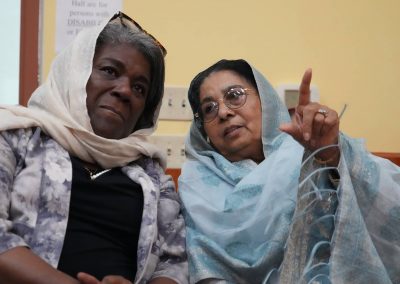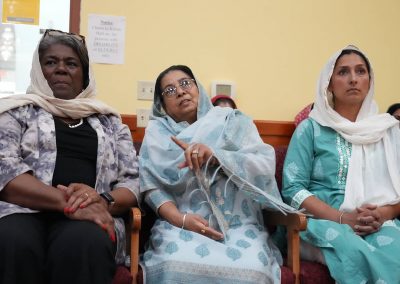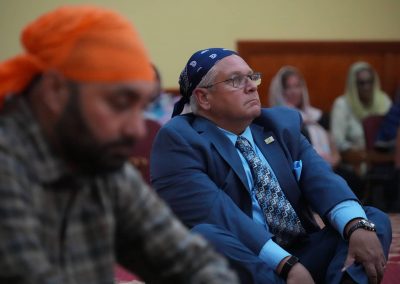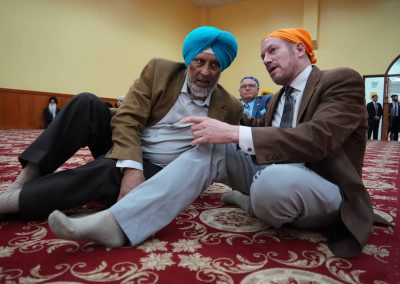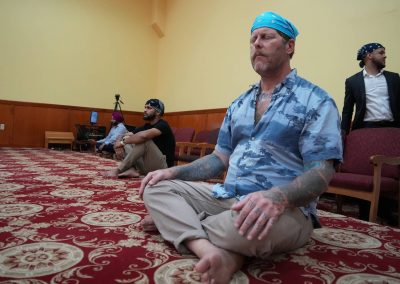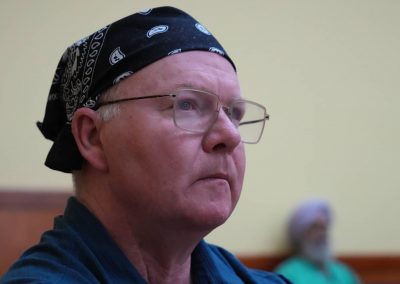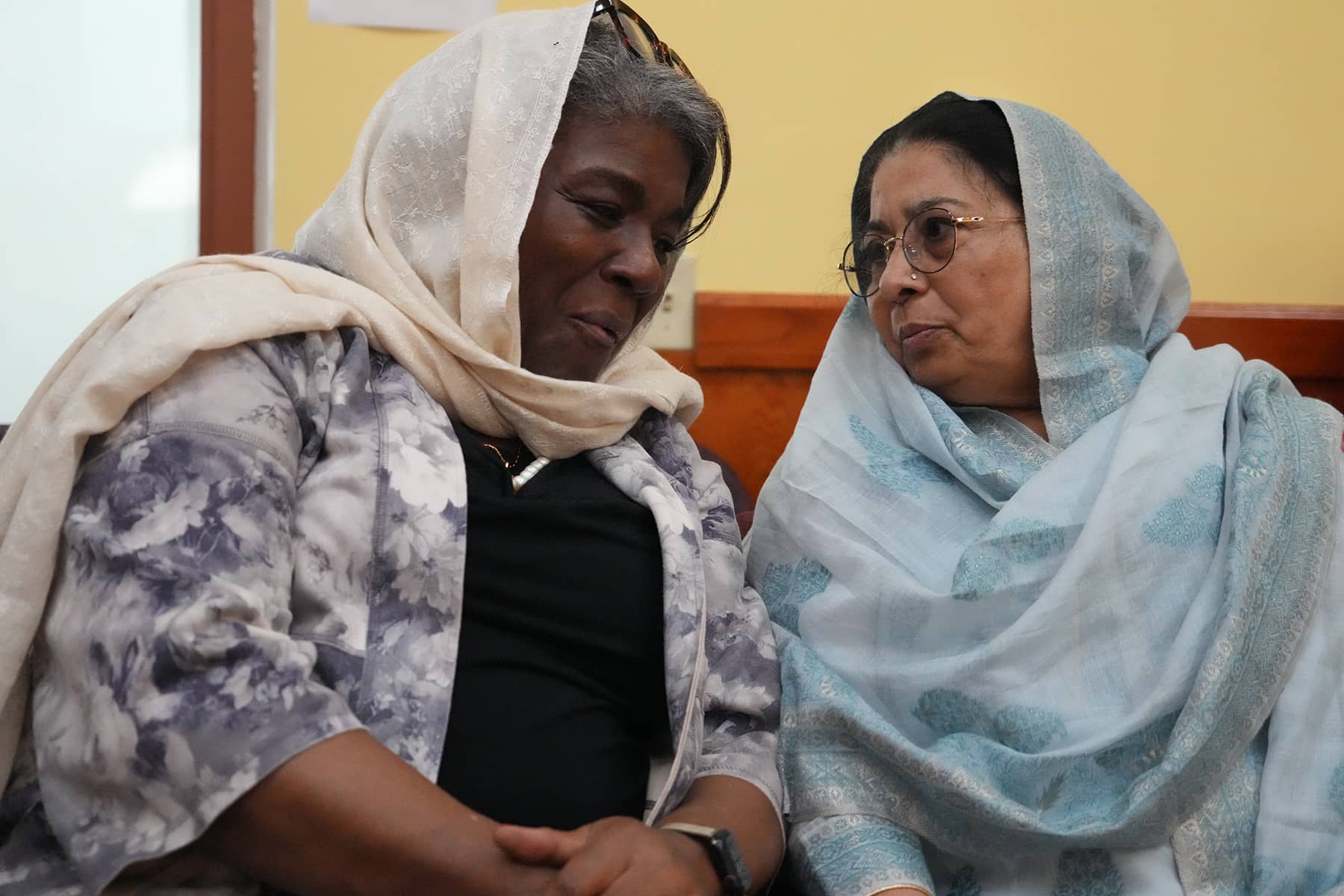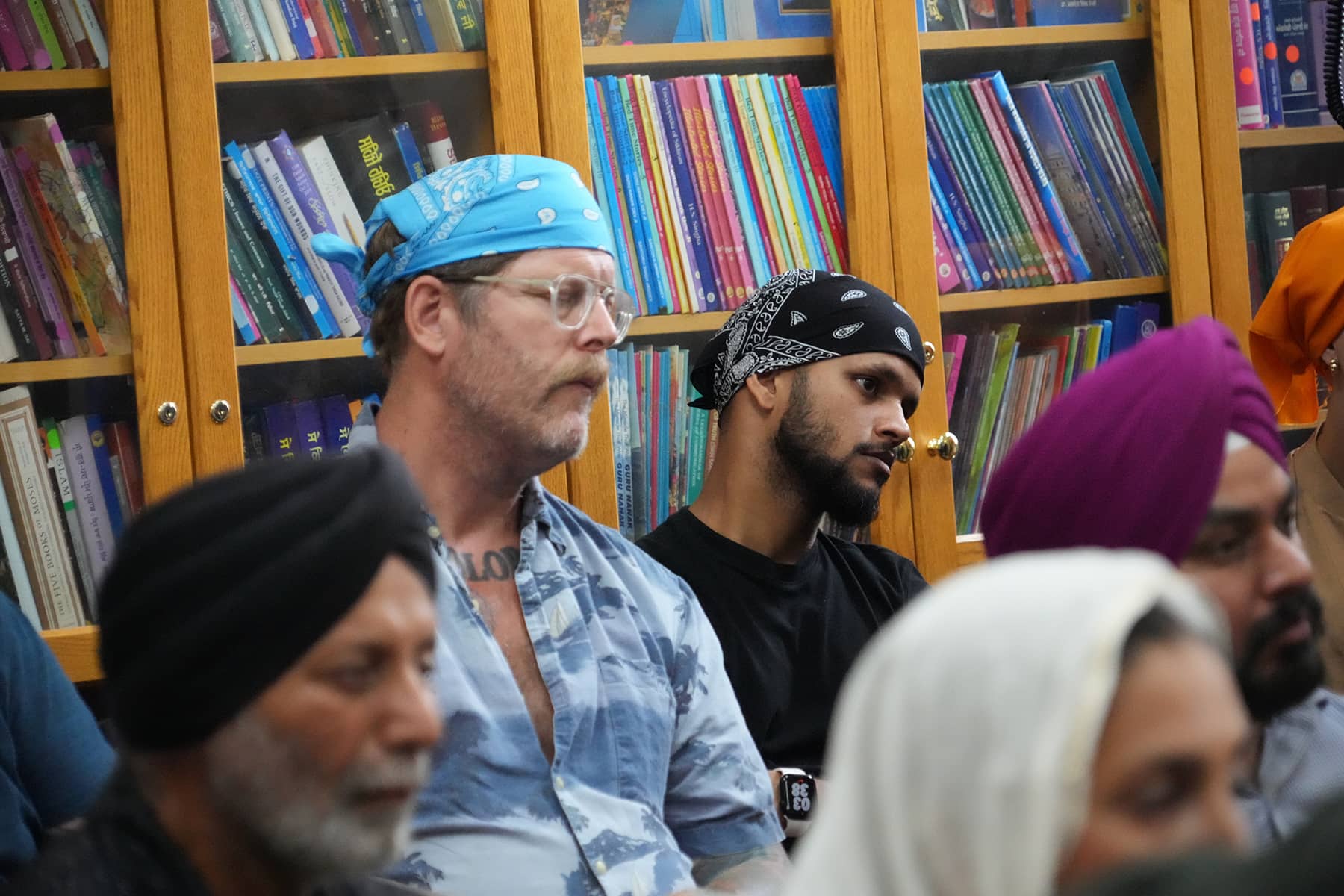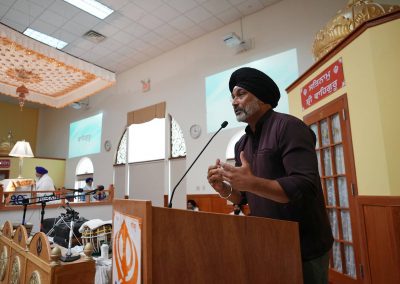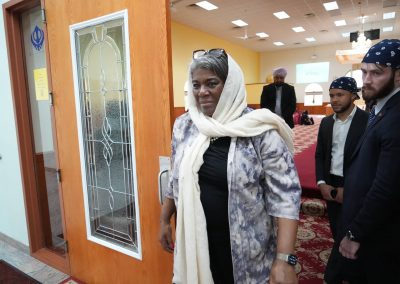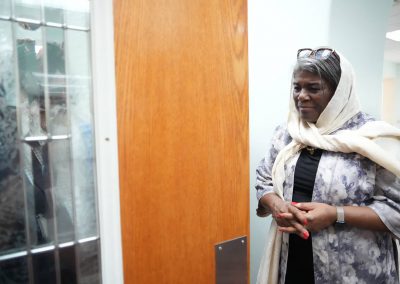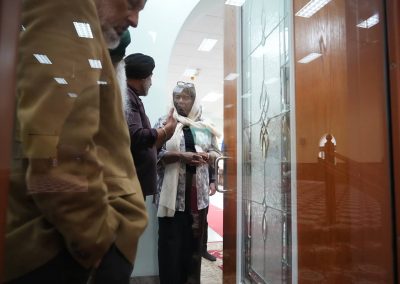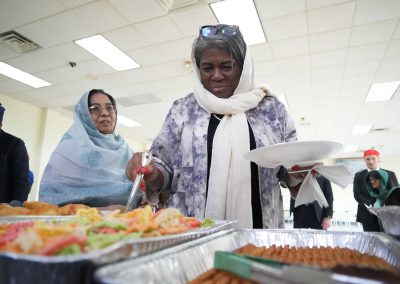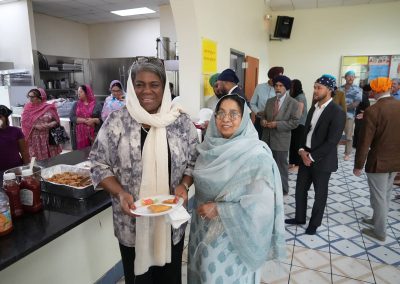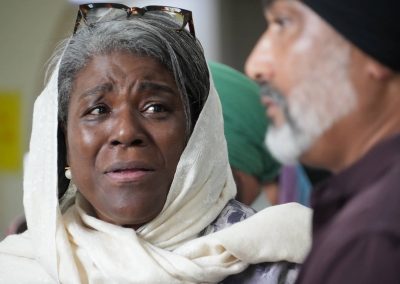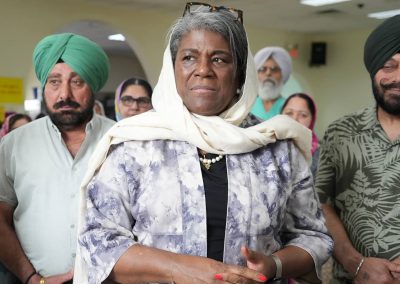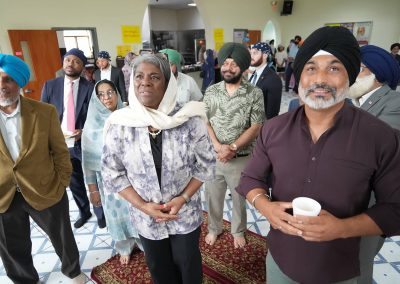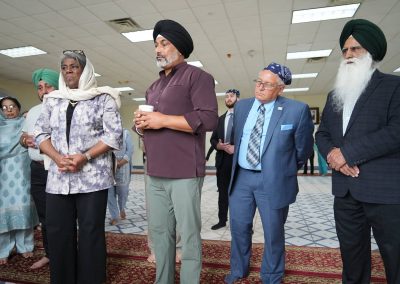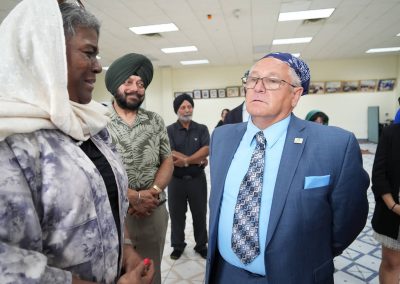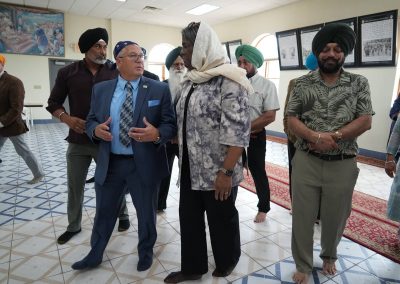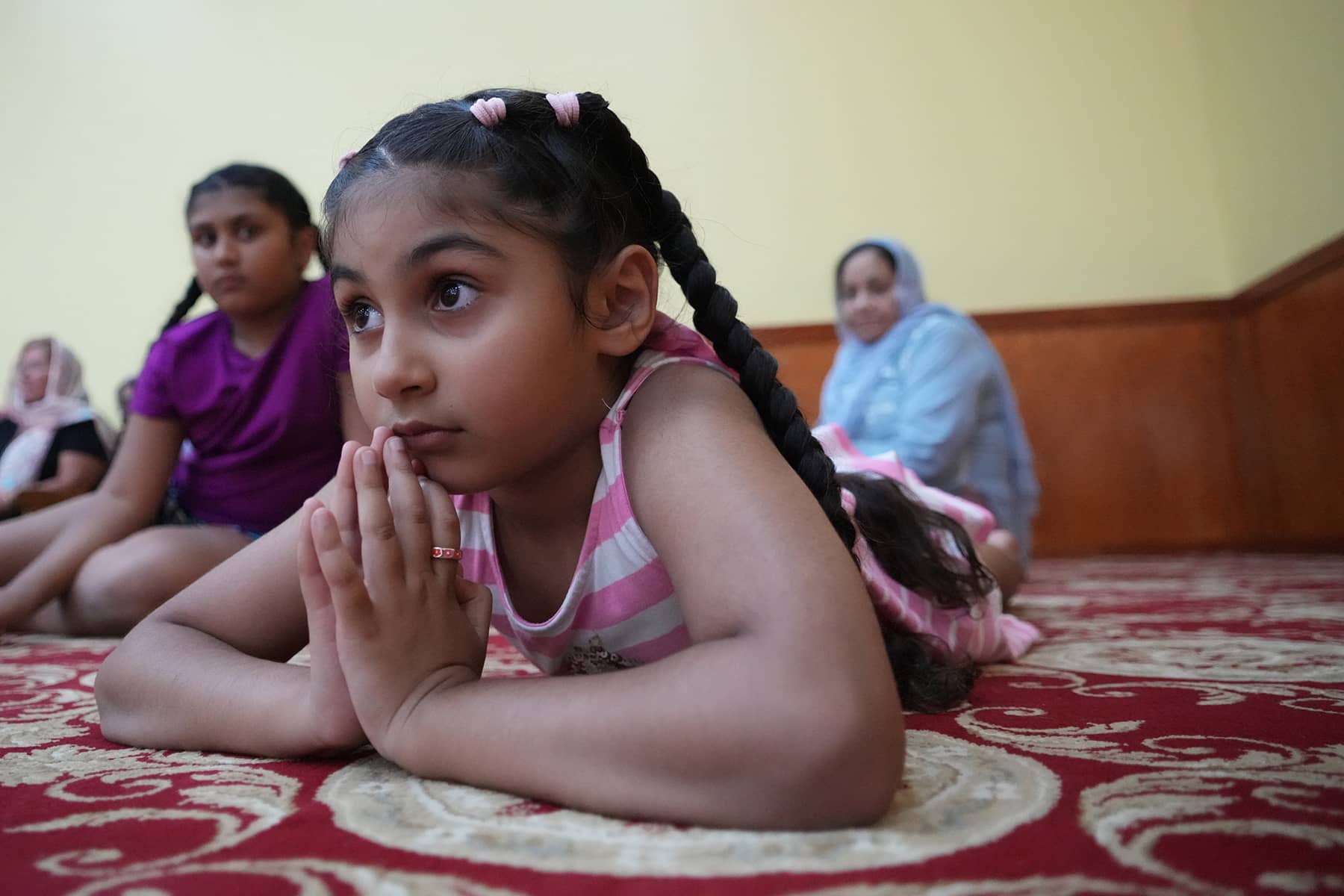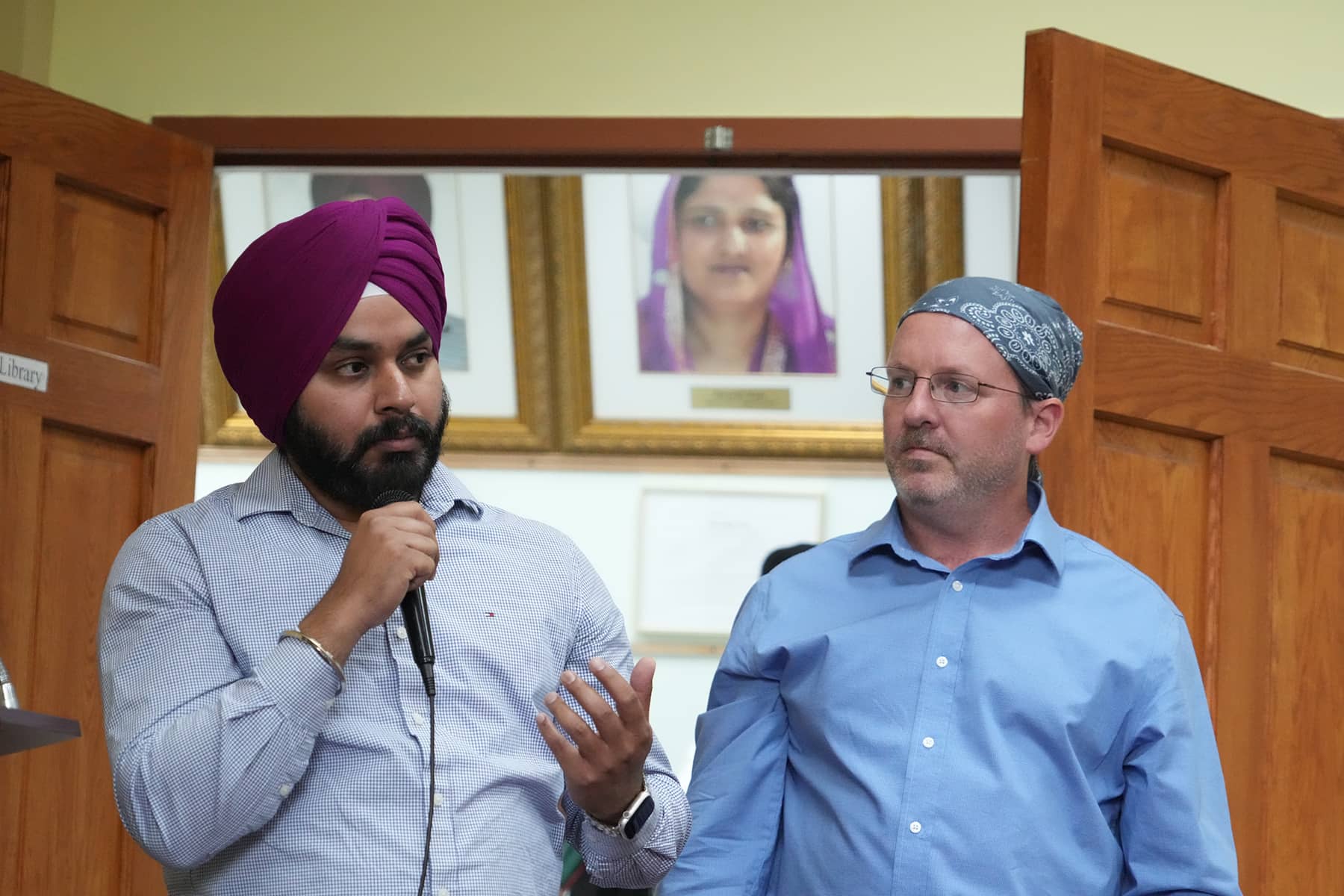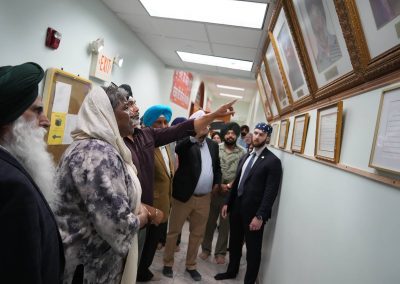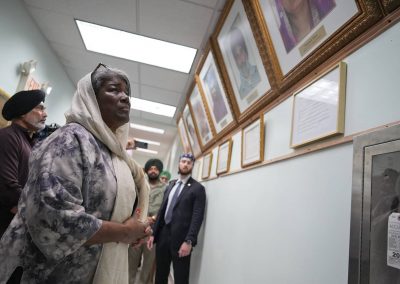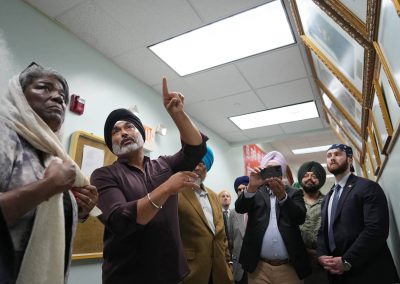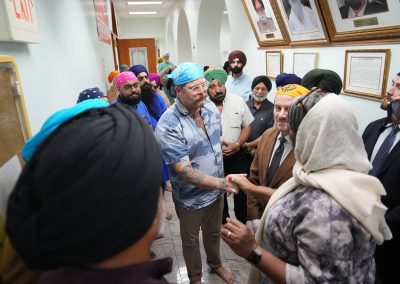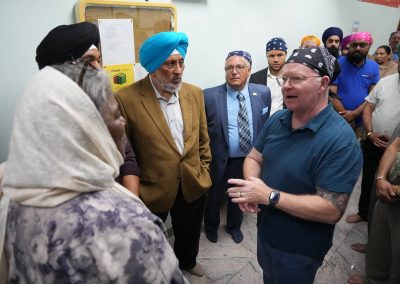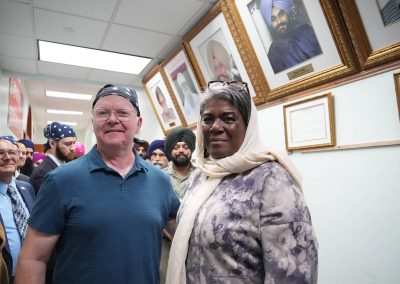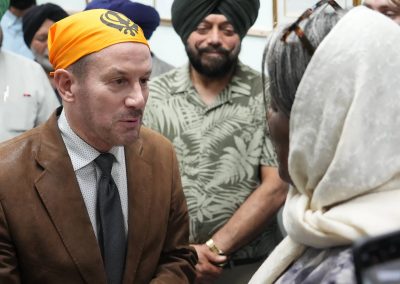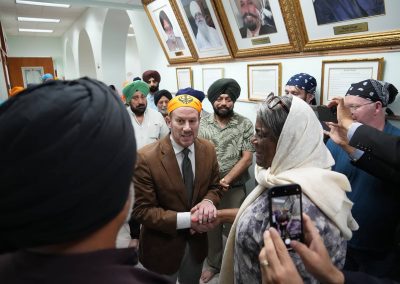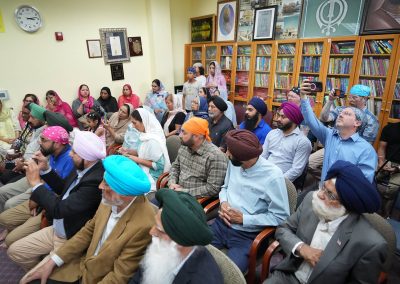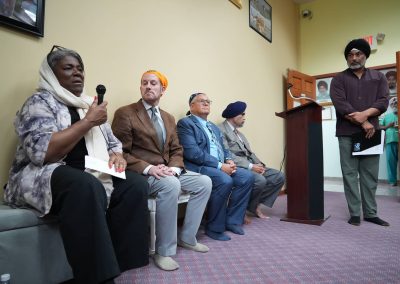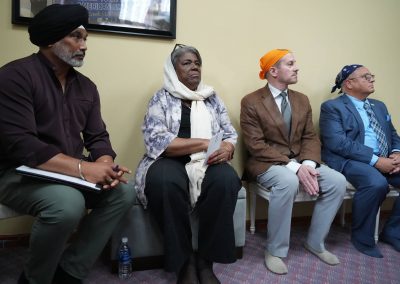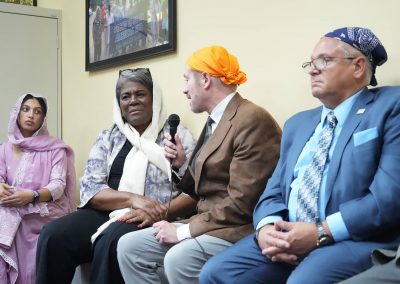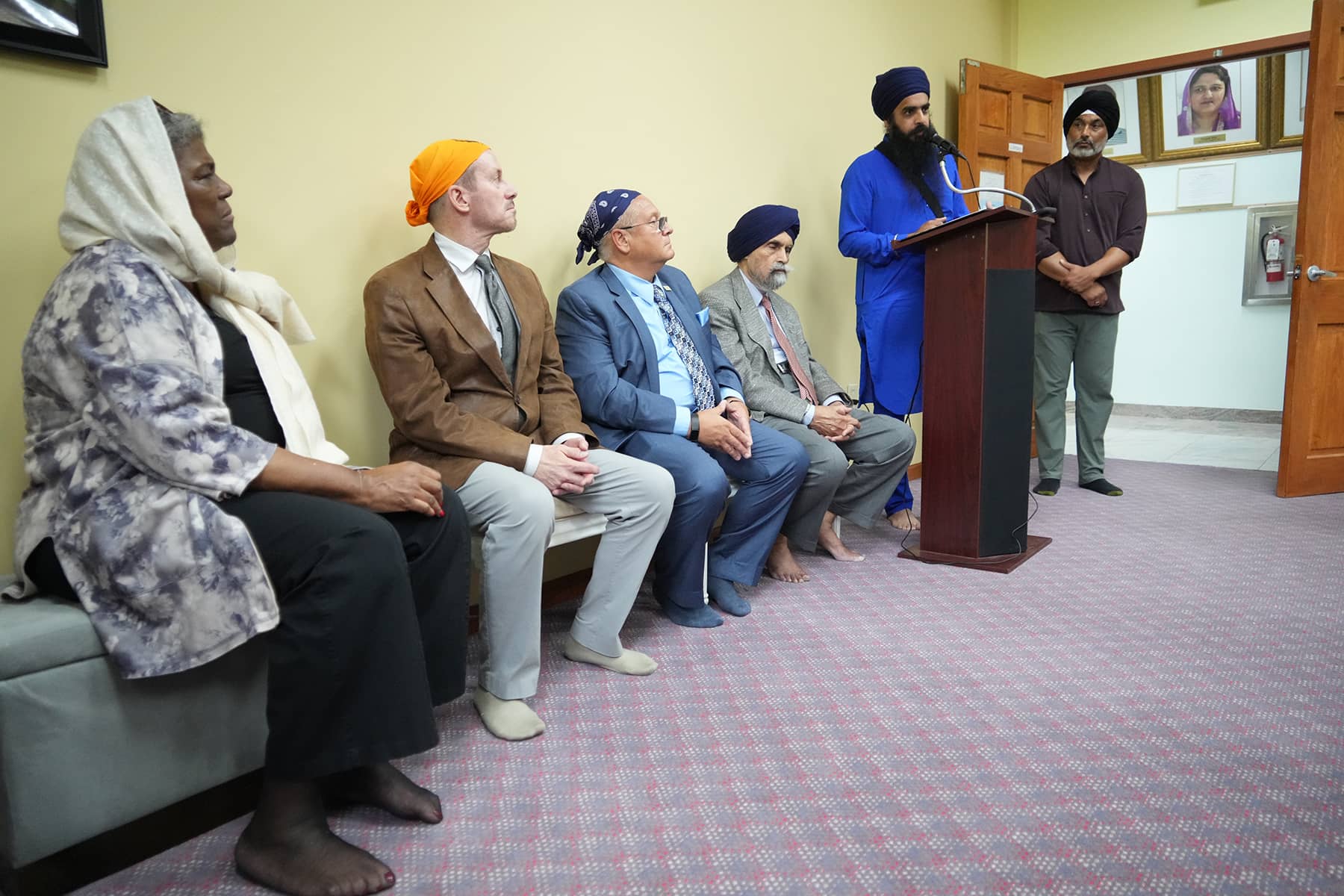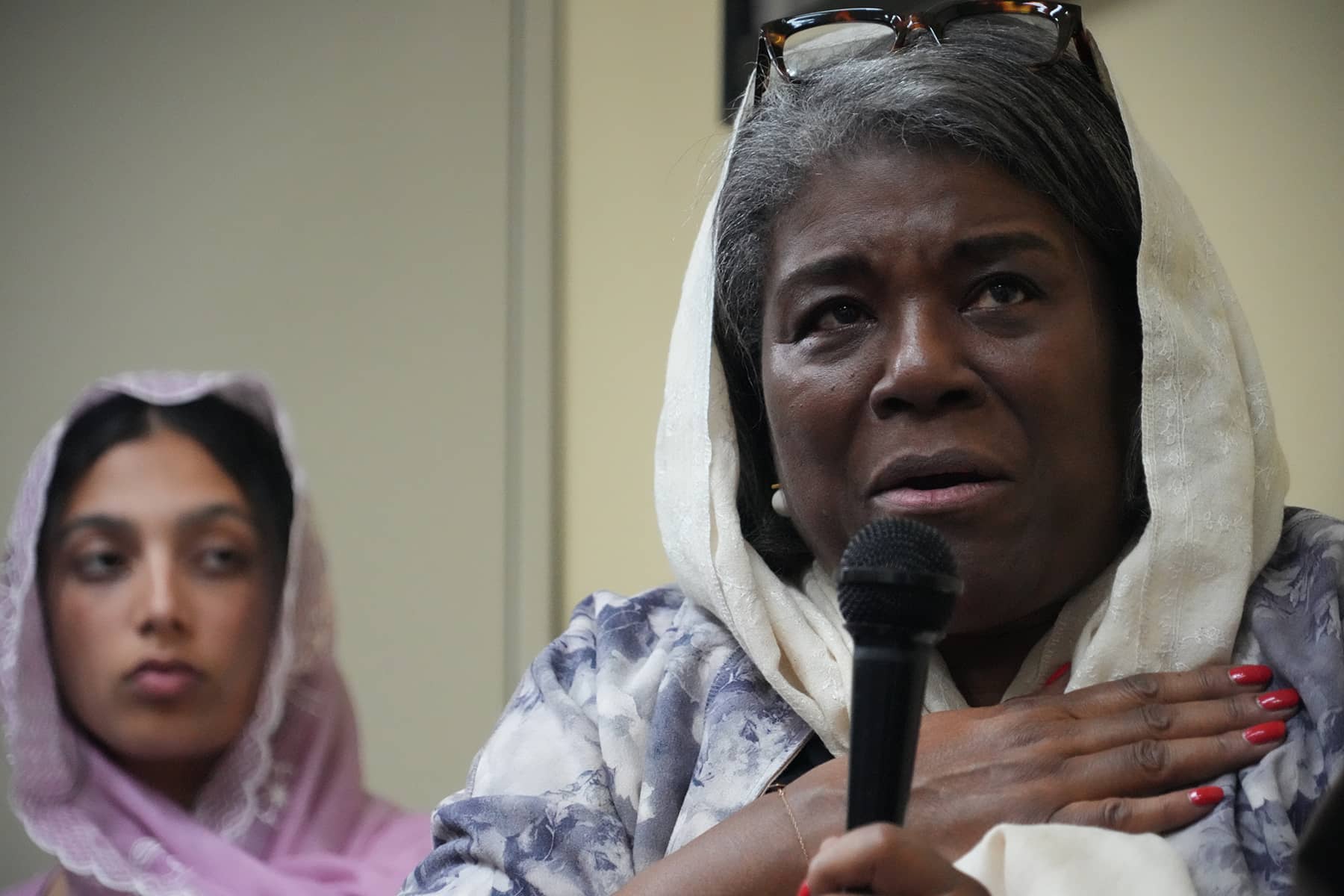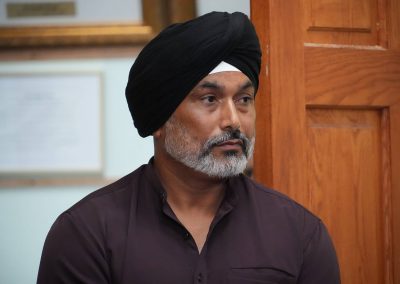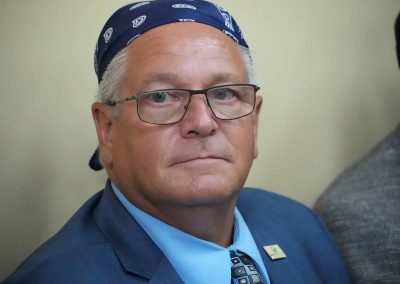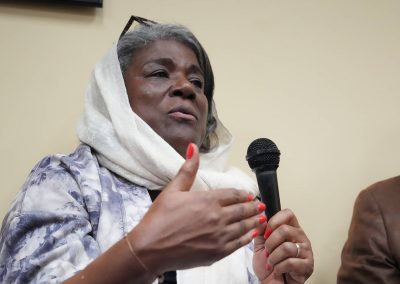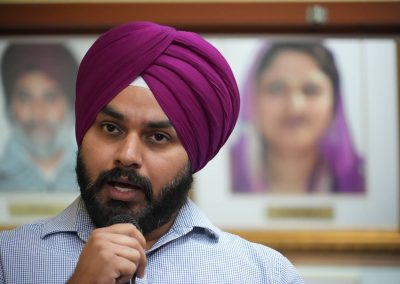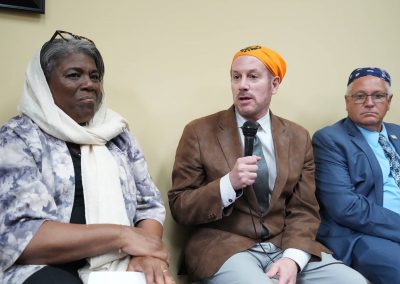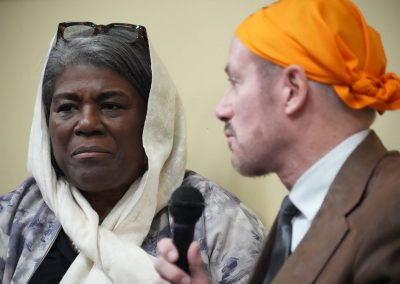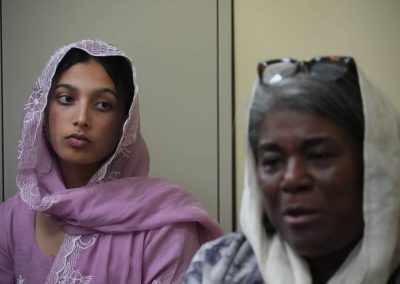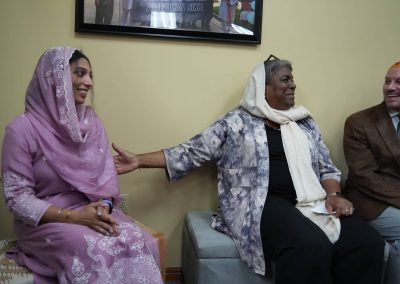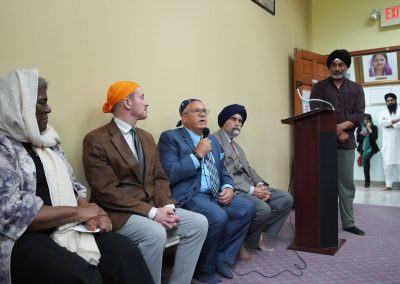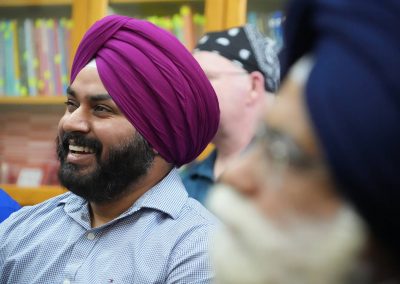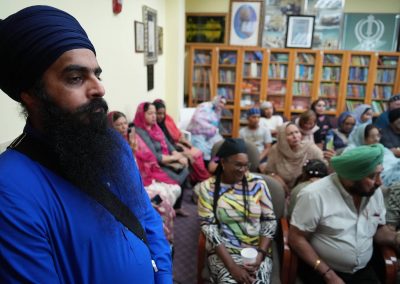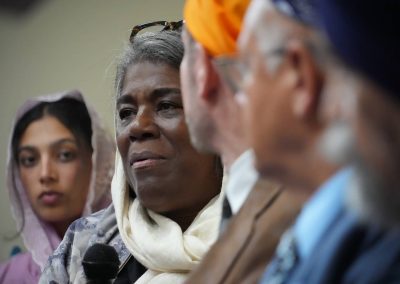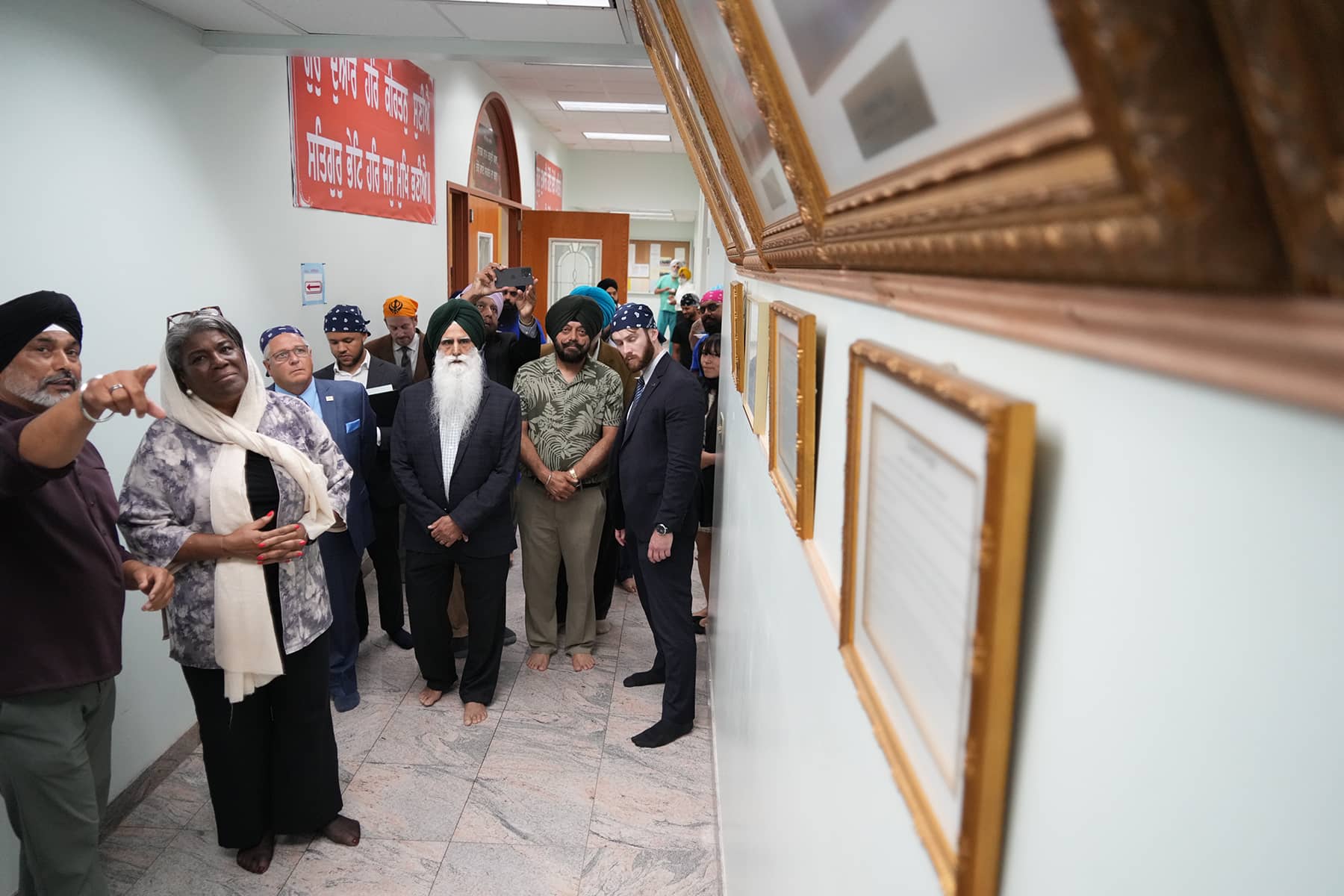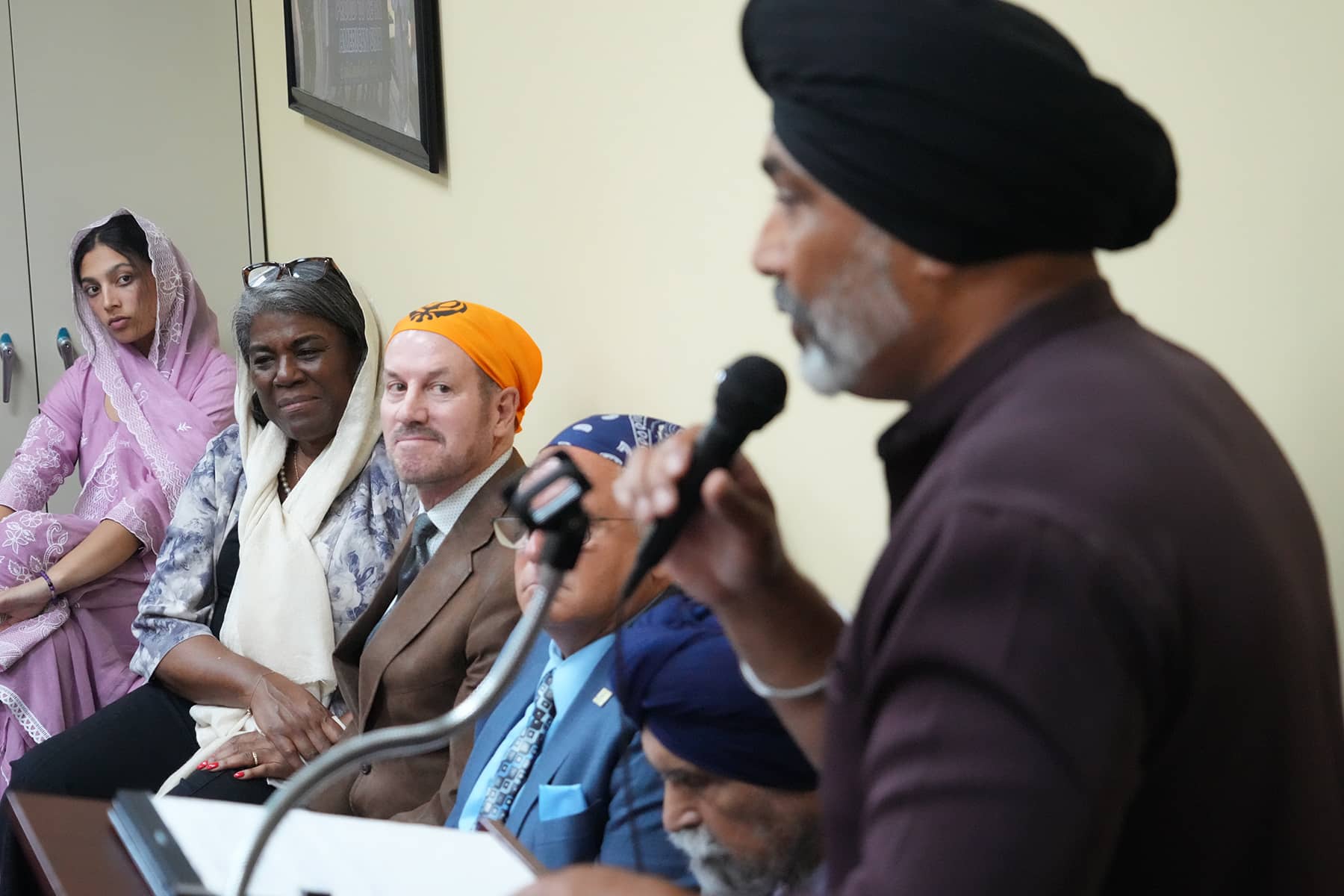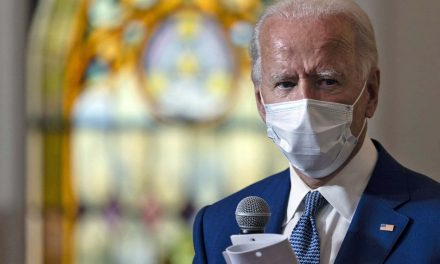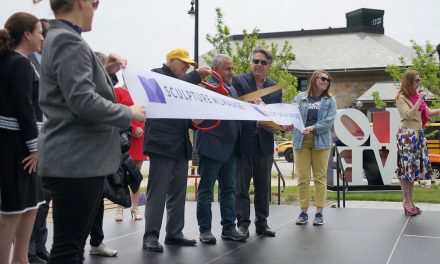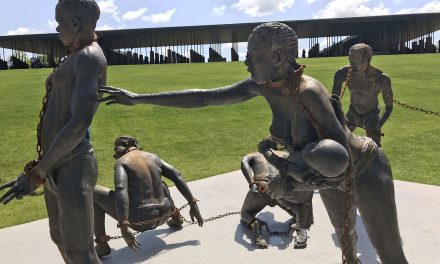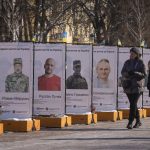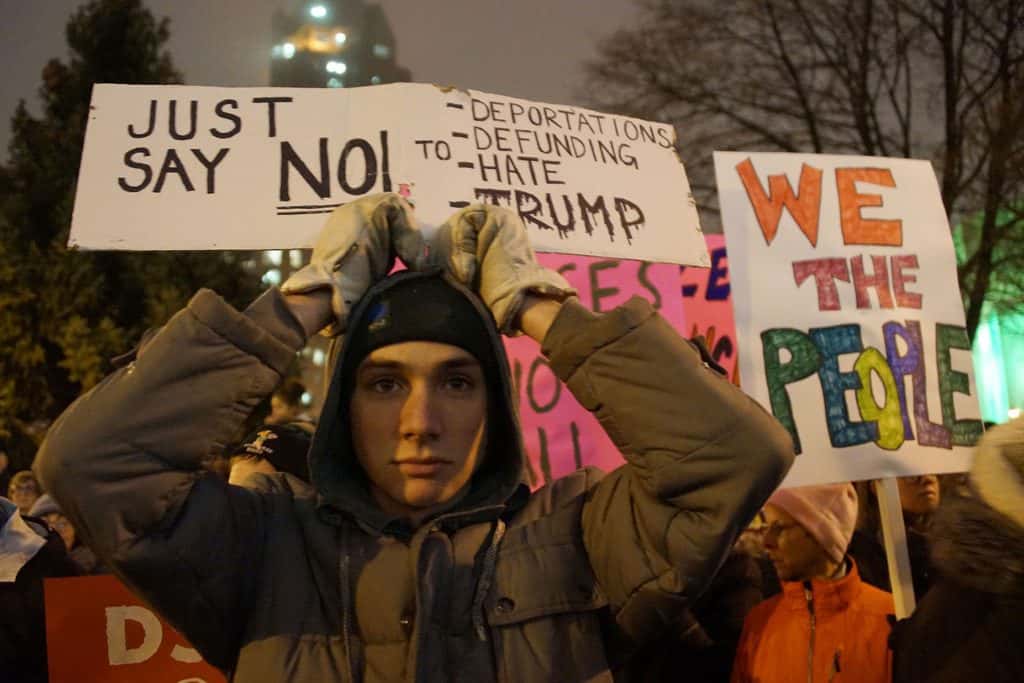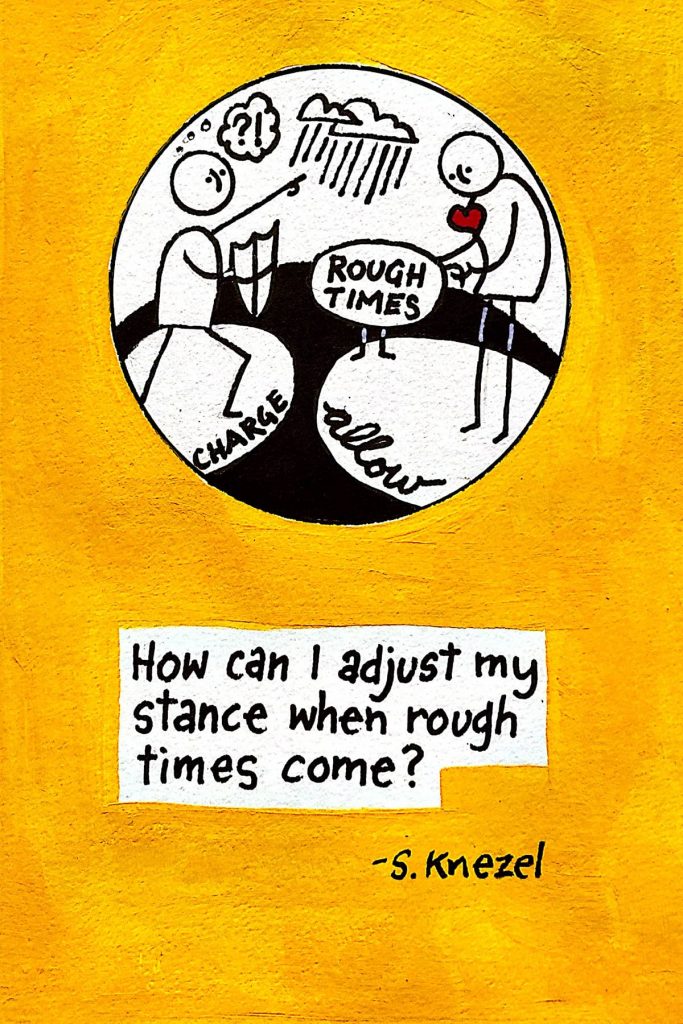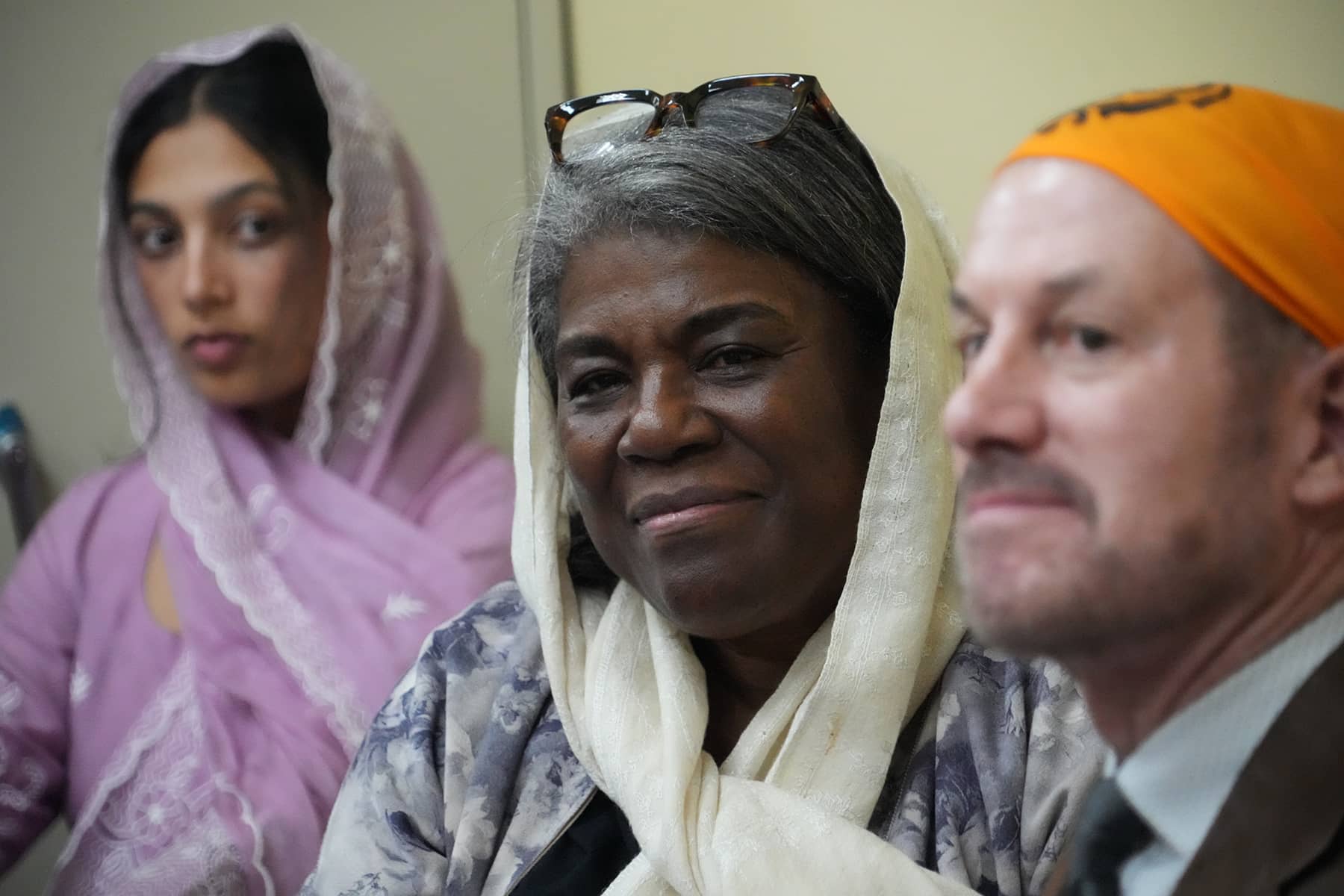
On the 12th anniversary of a tragic shooting at the Sikh Temple of Wisconsin, United States Ambassador to the United Nations Linda Thomas-Greenfield visited the Oak Creek gurdwara to honor the victims and engage with the local Sikh community.
Ambassador Thomas-Greenfield met with family members of the victims on August 5, heard of their advocacy for shooting victims, and reiterated the Biden-Harris Administration’s commitment to combatting hate.
“Part of the reason I’m here in Milwaukee and I do domestic travel, despite the fact that my job is more international, is about education. It’s about educating communities outside of New York, outside of Washington DC, about the importance of the United Nations and how we work to promote U.S. values and promote your interests in the United Nations. And so I am here for that main purpose, to hear from you so I can take your ideas back and continue to promote these issues at the UN.” – Ambassador Thomas-Greenfield
The summer of 2012 is carved into the collective psyche of Sikhs. The August 5th tragedy, where 7 souls lost their lives to a domestic terrorist. The deadliest act of violence against Sikhs in the U.S. also galvanized our collective commitment to build an environment where targeted violence like this would be less likely to happen to any community in the future.
In 2012, former Democratic President Barack Obama and then Vice-President Joe Biden were running for reelection against Republican nominees, Senator Mitt Romney and his running mate, former Congressman Paul Ryan.
The significance of that time was not lost on us. America was being asked, what kind of country do we envision for the next generation, and all the generations to come?
Following that terrible hate crime, our Sikh Sangat and the broader community showed the world the importance of our shared dignity and humanity. At that time, both Republicans and Democrats came together in the aftermath of hate to unite and express a collective commitment to grow from one of the deadliest hate crimes committed in a place of worship by a domestic terrorist.
Twelve years later, facing another divisive election, we must recommit ourselves to finding our shared humanity.
The August 5 visit by Ambassador Thomas-Greenfield marked the importance of Sikh contributions over the past twelve years, and how those efforts have advanced our nation’s modern-day civil rights. The Ambassador recognized the valuable contributions Sikhs have made throughout history to promote peace and justice.
Ambassador Thomas-Greenfield also acknowledged that Sikhs have been in allyship with a diverse range of partners and have served our country in many capacities, including military and law enforcement.
However, we know that there is still a lot of work to do. According to the U.S. Department of Justice, Sikhs remain the second most targeted group under religiously motivated hate crimes in the United States. Sikhs are not alone, as we have seen increased threats and targeted violence against the Black, Asian, Jewish, Muslim, and LGBTQI communities at large.
“Transnational violence against people by countries is something that is unacceptable. It’s unacceptable in our country. We stand by our values. We stand by our laws, and we stand by our commitment to protecting all populations wherever they are from and however they look. There is always a sense that if you are different, or if you look different, then people can hate you for that. But what you’re experiencing in the Sikh community is that in addition to the threat of transnational violence.” – Ambassador Thomas-Greenfield
Other contributions by Sikhs have been to help build infrastructure for protecting places of worship and faith communities. White Americans are not exempt from hate. Our history has caused deep lesions of racialized trauma, anxiety, and fear. Because hate impacts us all, we must heal together – Red and Blue, Jewish and Muslim, Black and White. Gay or Straight.
In reflection of the past 12 years, I believe the same question that was being posed in elections past is the same being posed this election year – what kind of country do we envision for our generations going forward?
“Many of us feel that the UN Charter is under attack today. The Charter is like the Constitution for the world. It defines the importance of the United Nations as an institution. It was created so that no more generations needed to experience the origin war. It was created so that we don’t have hatred in the world. It was created so that people, no matter where they are in the world, know equality. And we continue to fight that fight. It’s a process. It’s constantly evolving. And we constantly see attacks on the UN Charter. So I thought it was important for me to highlight the importance of the UN Charter, and that we continue to support its principles. It was created 70 years ago for a reason.” – Ambassador Thomas-Greenfield
In her closing remarks, Ambassador Thomas-Greenfield specifically pointed out the need for us to never give up hope. She spoke about her own personal struggles of being a Black woman growing up in America, becoming the United States Ambassador to the United Nations, and why – despite the difficult times – she held tightly to hope.
Each and every one of us has a story of hope. Hope is the eternal heartbeat. It gives us reason and purpose. Hope is not without struggle nor pain. Hope is found everywhere but at times feels so elusive. It is found in the crease of a stranger’s smile, and it is found in our own darkest hour.
Sometimes it can feel like hope is playing hide-n-seek. Other times, hope is staring you in the face. Hope is both simple and complex. Hope is ultimately a giver and at the end of the day, hope is worth it.
Each and every one of us has a story of hope.
© Photo
Lee Matz

